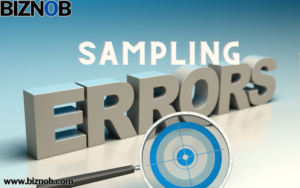What is smart selling?
Smart Selling: Significant changes have occurred in the art of selling in our fast-paced, tech-driven world. New ways of selling that use the power of technology and data are replacing old ways of doing things. Smart selling is one way to do this.
How do you “smart sell”? Smart selling is what makes the digital change in sales possible. It uses cutting-edge technologies and data-driven strategies to improve customer interaction and make sales processes run more smoothly.
Synonyms
- Sales efficiency
- Data-driven sales processes
Intelligent Selling: How Sales Are Changing
Smart selling is a way to deal with the changing sales environment caused by technology, changing customer habits, and how the market works. To do well in this new world, salespeople must use technology, focus on personalized interactions, embrace data-driven insights, and build strong customer relationships. Smart selling helps sales teams improve their processes, go above and beyond what customers expect, and bring in more money in a market that is getting more competitive.
Essential Parts of Smart Selling
Smart selling is all about using AI, machine learning, predictive analytics, and automation tools to ease sales tasks and improve results. Smart selling uses customer data and analytics to help salespeople learn much about their customers’ likes, dislikes, behaviors, and needs. This lets them have conversations that are very specific and personalized.
Smart selling has many benefits.
Smart selling is becoming more popular as a sales approach because it has many benefits, such as making sales more efficient, improving the customer experience, and helping people make better decisions.
Better efficiency
Smart selling helps sales teams do their jobs better instead of harder. Sales automation tools and algorithms that AI runs make it easier to do things over and over again, so salespeople can spend more time building relationships and finishing deals.
A better experience for customers
Smart selling creates a smooth and exciting experience for the customer by using personalized interactions, timely follow-ups, and custom suggestions. Customers feel understood and appreciated, which builds better relationships and makes them more loyal.
Making decisions based on data
Smart selling uses data analytics to find ideas that can be implemented. To improve their sales strategies and conversion rates, salespeople can look for trends, guess what customers will want, and make choices based on data.
Smart Selling’s Most Important Strategies and Tools
The old way of selling doesn’t work anymore in today’s highly competitive business world. It doesn’t meet the needs of current customers. Companies must change and use innovative selling strategies to do well in the market as technology keeps improving.
Platforms that help with sales
Sales enablement platforms put together a central location for sales materials, training materials, and real-time analytics on sales success. This way, sales teams can easily find the information they need and keep track of their progress.
Sales Assistants Powered by AI
Intelligent chatbots and virtual assistants handling natural language can interact with customers, answer their questions, and make personalized suggestions. This gives customers support 24 hours a day, seven days a week, and frees up sales reps’ time.
Predictive analytics looks at past data and patterns of customer behavior to find possible leads, rank prospects, and predict sales trends. This helps sales teams do their jobs well by allocating resources correctly.
Adding CRM and CPQ Together
When you combine innovative selling technologies with customer relationship management (CRM) systems, you can easily share data and get a complete picture of each customer, which lets sales reps adjust how they talk to them. Configure Price Quote (CPQ) helps businesses simplify their sales processes, automate pricing and quotes, and give customers accurate product configurations. With CPQ solutions, sales teams can set up complicated goods quickly and easily, using the most up-to-date prices and discounts. CPQ also lets sales teams set the same prices across all channels and areas, which is helpful. With this feature, reps can make quotes more accurate because they know what prices work in different areas without spending time researching information by hand. This helps ensure that sales teams can keep up with the competition in the market and still make money.
Getting past problems and adopting smart selling
Smart selling is changing how people sell things by giving salespeople more tools to be more efficient, improve the customer experience, and make choices based on data. By using new technologies and customer data correctly, businesses can unlock the promise of intelligent selling and stay ahead in today’s challenging market.
Here are some ways businesses use smart selling to get around the problems that come with this new way of selling.
Training and being able to adapt to new technologies: As the sales world changes, salespeople need to learn how to use new technologies successfully. Upskilling and training all the time are essential for intelligent selling.
Privacy and Ethics in Data
With more uses of customer data, it’s essential to protect data and honestly do business. To build customer trust, businesses must put data protection first and follow the applicable rules.
Making automation and the human touch work together
Smart selling automates and speeds up the process, but finding a balance between technology and human contact is important. Real ties and one-on-one relationships are still significant for making sales.
Smart selling will remain an essential strategy for businesses that want to do well in the digital age, even as sales change.
Tips for Putting Smart Selling into Practice
Now, let’s look at the best ways to use intelligent selling techniques to help you make sales.
Accept what customers have to say
Using the power of data is the first step to intelligent selling. Using customer data, businesses can learn much about their customers’ likes and dislikes, how they act, and what they buy. By looking at this data, sales teams can change how they talk to customers, tailor their approach, and offer specific answers for each one. CRM systems and advanced analytics tools can give you the data to make good decisions and plan your sales strategies.
Make choices based on the data.
In smart selling, data is critical. Salespeople can use information about customers, market trends, and competitors to make intelligent choices and plan their sales tactics. By looking at data, sales teams can find patterns, guess how customers will act, and improve their methods to make the most of sales opportunities. Furthermore, insights based on data help salespeople find possible cross-selling or upselling options and use their resources for better results.
Adopt a mindset focused on the customer.
Smart selling is all about knowing what customers want and giving it to them. Salespeople can build trust, form long-lasting relationships, and go above and beyond what customers expect by putting the customer first. This method includes actively listening, understanding the problems customers are having, and making solutions that specifically target their pain points. When businesses put the customer at the center of the sales process, they can build meaningful relationships that lead to loyalty and more sales.
Make use of automation and technology.
In this age of “smart selling,” technology is a vital part of simplifying sales processes and making them as efficient as possible. Automation tools, like chatbots, email marketing platforms, and sales enablement software, can do tedious chores automatically, giving salespeople more time to connect with customers and close deals. CPQ and sales enablement tools, which use predictive analytics and machine learning, can also look at vast amounts of data. This helps sales teams find trends, guess how customers will act, and make their sales strategies more effective.
Use content marketing to add value.
A big part of intelligent selling is educating and informing buyers. By sharing helpful information, industry trends, and thought leadership through content marketing, your company can become known as a reliable source of advice. Putting together good content like blog posts, e-books, videos, and podcasts builds trust in the brand and brings in possible customers. The company can nurture leads, build trust, and get people to buy by consistently putting out helpful material.
Bring together sales and marketing.
A big part of intelligent selling is ensuring that marketing and sales work together to give customers a better experience. Combining marketing automation tools, content marketing, and lead-handling methods with the sales process makes it easy to go from getting leads to closing deals. When marketing and sales teams work together, they can make better plans to attract, engage, and convert customers.
Take part in social selling.
Social media sites have grown into powerful tools for intelligent selling. Social networks like LinkedIn, Twitter, and Facebook can help salespeople build their brand, connect with leads, and share helpful information. Social selling means actively participating in talks about your industry, joining relevant groups, and making real connections with others. Putting the company in the spotlight as an expert source helps bring in leads, open new possibilities, and speed up the sales cycle.
Constantly learn and change.
The world of sales is constantly changing, and to be a savvy seller, you must be willing to keep learning and adapting. Ensure your sales team knows about the newest technology, sales methods, and industry trends. To help them learn and improve their work, spend money on training programs, classes, and certifications. You can ensure that your sales methods work in a constantly changing market by encouraging people to learn and be flexible. In today’s competitive market, companies need to use intelligent selling techniques. Sales teams can reach their full potential and be incredibly successful at selling by using data-driven insights, putting the customer first, utilizing technology, offering value through content marketing, accepting social selling, and dedicating themselves to ongoing learning. In the age of intelligent selling, these best practices help companies make more money, keep customers, and stay ahead of the competition.














































